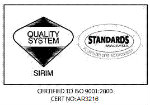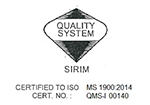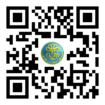Socio-Economic And Political Rules In Islam
Abu Zayd ‘Abd ar-Raḥman ibn Muḥammad (1332-1406 CE) or Ibn Khaldun as he was known expounds that man is sociable by nature. In view of this, a set of rules and regulations that draws the line and serves as a common reference for man in governing his relation with others should be in place. Such rules and regulations can be found in the Quran. In fact, the Quran does not only prescribe directives for man on how to behave as an individual but also as a member of the society.
As a social being who lives in community rather than in isolation, his existence within a group of people is basically based on mutual interests and the exchange of services (Saoud, 1988). Both elements are the derivatives of the spirit of trust and confidence, and honouring one’s word and adhering to mutually agreed upon commitment are the pathway to be trusted by others.
The significance of fulfilling the contracts and keeping the promises should not be underestimated for scores of Quranic verses and prophetic traditions lay great emphasis on such virtues. In surah al-Ma’idah, verse 1, Allah Almighty pronounces to the effect: “… O you who believe! Fulfil the obligations”.
A comparable emphasis can be observed in surah al-Isra’, verse 34: “..and fulfil the promise; surely (every) promise shall be questioned about.”
In another verse, the stress is more evident as the most hateful in the sight of Allah are those whose rhetoric appear to vary from their actual deeds. Allah Almighty declares to this effect: “O you who believe! Why do you say that which you do not do? It is most hateful to Allah that you should say that which you do not do.”
The above verses epitomise the concern of Islam with regard to moral imperative among Muslims. It urges them to respect their commitments and when bound with someone by an agreement, they must observe it with rigour. Given the significance of both virtues—on top of other moral righteousness promulgated by Islam—in human life, every Muslim should think seriously before making any promise or entering into any contract because failure to fulfil any prior commitment made—whether it is a promise or a contractual agreement—will not only be considered as sinful according to Islam but also put at risk the interactions among individuals of the community.
In addition to contracts, the Quran also specifies the rules governing property rights. In Islam, all resources belong to Allah but He never puts any restraint upon humans from sharing or taking benefits from His resources. In fact, all things in the universe are the common property of Adam’s progeny. Using his inborn potentialities, man is encouraged to combine the resources with his effort and creativity to produce and develop the earth. This becomes the basis of private property rights in Islam. More importantly, such a right is protected against any violation for example theft, robbery or any unjustified enrichment such as riba, fraud, cheating or monopoly.
Notwithstanding that, Islam also has placed certain moral restrictions on the right. Among others, the property must be acquired through lawful earnings and one is not free to waste it. Since the notion of wealth in Islam is initially common to all, it must not remain concentrated in the hands of merely a few (Hasan, 1988). As such, those who are less fortunate are guaranteed their rights through non-voluntary and voluntary mechanisms. Thus, noticeably, zakat and sadaqah play an important role in the process of redistributive justice in the society. It also implies that Islam promotes the concept of brotherhood and cooperation (see surah al-Ma’idah, verse 2) among members of a community whereby those with surplus give to the less fortunate.
The importance of the concept of cooperation is now widely recognised especially in private organisations. The spirit enables the company to achieve economic efficiency and increase profitability. Nevertheless, the spirit of cooperation can also be manipulated by business firms for unlawful objectives. In the present day context, such a violation is evident in the corporate world through oligopoly practices.
In addition to the spirit of cooperation, the Quran also says that man should conduct his affairs with others based on mutual consultation. This is stated in verse 159, surah Ali-Imraan and verse 38, surah al-Shura.
This principle has wide ranging implications for the present day economy. For example, the government should consult people before making any major policy change. Similarly, this should be practised at the firm level where employers and employees should consult one another in various areas of management (Akram Khan, 1995).
Above all, the ultimate Shariah wisdom underpinning the aforementioned principles governing human relations is to uphold the concept of justice and establish a just society. Unlike the common understanding of the word, the meaning of justice or ‘adalah in Islam is to place everything, be they action or thought, where Allah s.w.t has specified. In surah al-Nahl, verse 90 Allah s.w.t asserts to the effect: “Surely Allah enjoins the doing of justice and the doing of good (to others) and the giving to the kindred, and He forbids indecency and evil and rebellion; He admonishes you that you may be mindful.”
The Islamic concept of justice is highly comprehensive and it implies that man must observe fairness and equity in his saying and doing. Islam indeed gives so much emphasis on the concept of justice. The reason for this emphasis is none other than to make man to become a God-conscious person. In surah al-Ma’idah verse 8, Allah s.w.t commands to this effect: “Be just, this is closest to being God-conscious”
Therefore, justice should become the underlying basis of all activities of humanity. In the field of economics, the concept of justice will lead to achieving institutional economic structure prescribed by the Quran and the sunnah. From the social aspect, justice will bring peace and harmony in human personal and interpersonal relations with others. In the political arena, a just leader is the one who always thinks the best for his subjects. By giving his subjects their lawful rights and placing everything in its rightful place, he definitely is on the right path towards achieving the status “baldah thoyyibah wa rabbun ghafur” or a good land and a Forgiving Lord—as mentioned by the Quran in verse 25, surah as-Saba’—for his nation.




